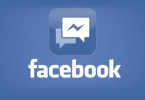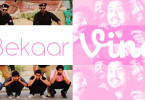Facebook lovers rejoice! The CEO of the social media giant Mark Zuckerberg has announced that it is working to introduce the much-wanted and the much-needed “dislike” button.
After what seemed like an eternity, Zuckerberg has answered the pleas of millions of FB users who always dreamt of expressing their disdain on the social networking website via a dislike option.
“People have asked about the ‘dislike’ button for many years, and probably hundreds of people have asked about this, and today is a special day because today is the day that I actually get to say we are working on it and are very close to shipping a test of it,” said the CEO of Facebook during a meeting at FB’s California headquarters.
However, Mark revealed that FB’s plan is not to adopt a Reddit-style downvoting or an upvoting system. The real motive behind the new button will be to pave the way for users to express themselves beyond the website “like” option.
“What they really want is the ability to express empathy. Not every moment is a good moment,” said the Facebook founder.
Now users no more will have to like drastic statuses of someone’s funeral or ugly profile pictures of their friends. It is expected that the much-awaited dislike button will be rolled out on FB in upcoming weeks after being extensively developed and tested.
Mark Zuckerberg’s announcement on launching the Dislike button was bound to spread like wildfire on social media. Now Twitter town is abuzz with the latest happening news.
Why to have Dislike Button
The ability to express emotions to other people matters to users. The new button gives people an additional way of expressing empathy for others, this makes them feel more connected. Expressing connection, whether liking or solidarity, is an exchange of social capital that creates a psychological bond.
Expressing emotional experiences and getting feedback from others can be validating. In the case of grieving, it can help someone make sense out of hardship and to begin to frame it in a way that facilitates grieving and meaning. Having support from friends can turn challenges into positive growth opportunities because even the simple click by others demonstrates social capital that exists in spite of whatever is going on. In the case of a cause or belief, social validation and affiliation normalizes and strengthens commitment.
The introduction of another emotion button may add to existing concerns held by many that we’ve turned into a society of superficial clickers suffering from relational slacktivism. No one needs to worry about this. Humans are social animals, driven to connect. They will choose the best way to achieve that connection. Facebook works for covering distance and bridging gaps; it provides the touch points between face-to-face encounters that enhance relationships. It does not leave people alone together.






